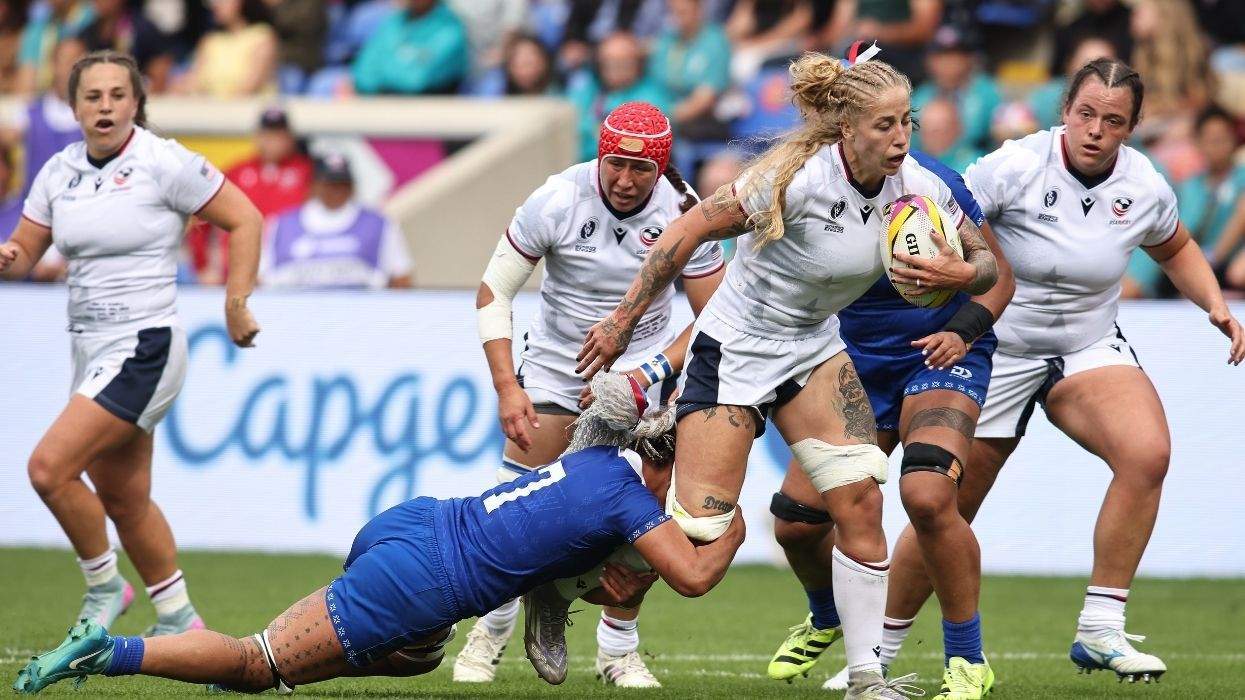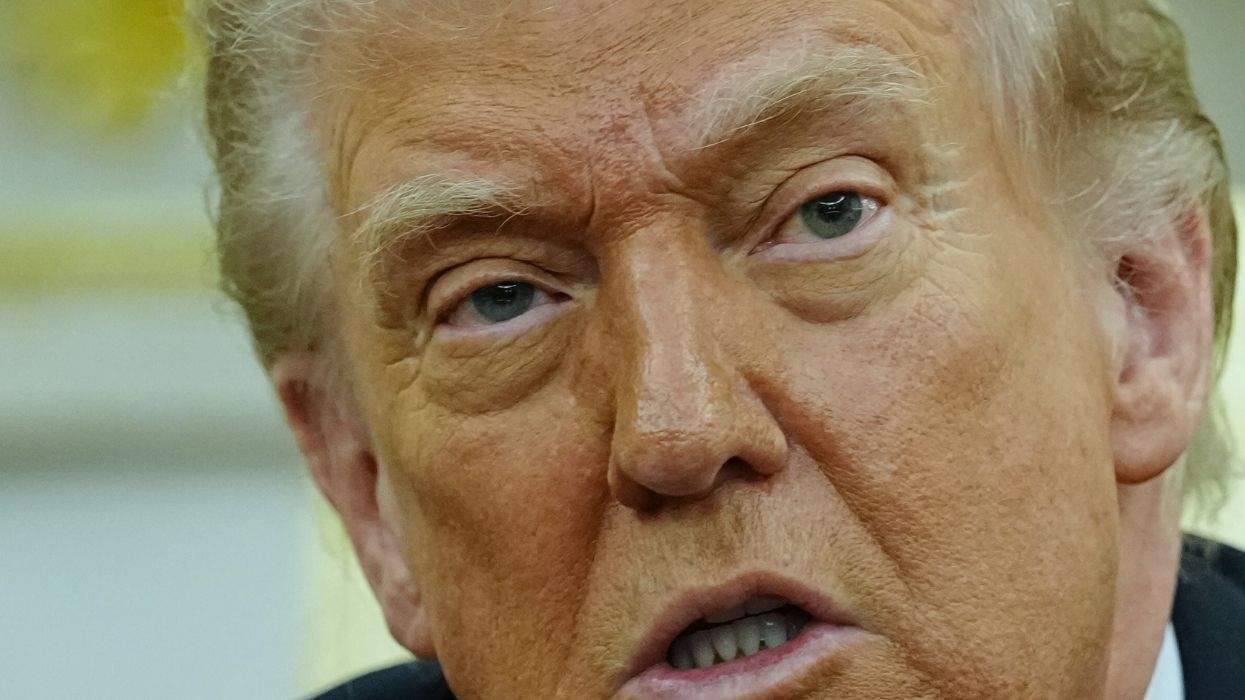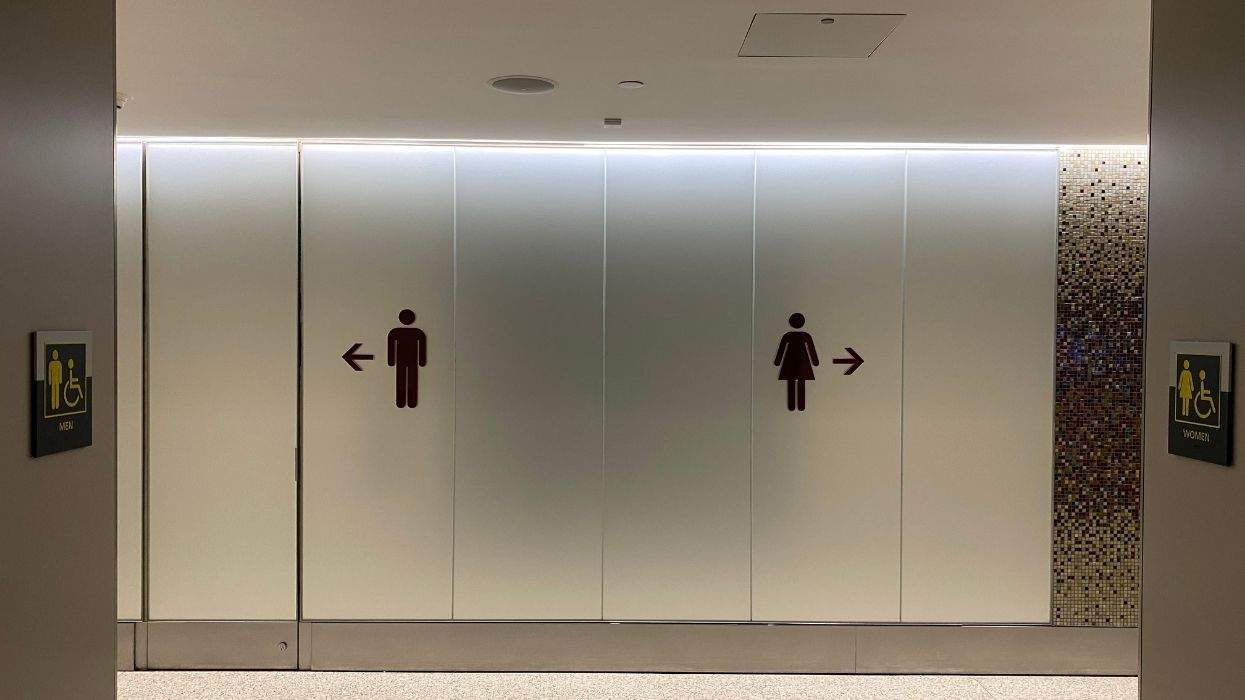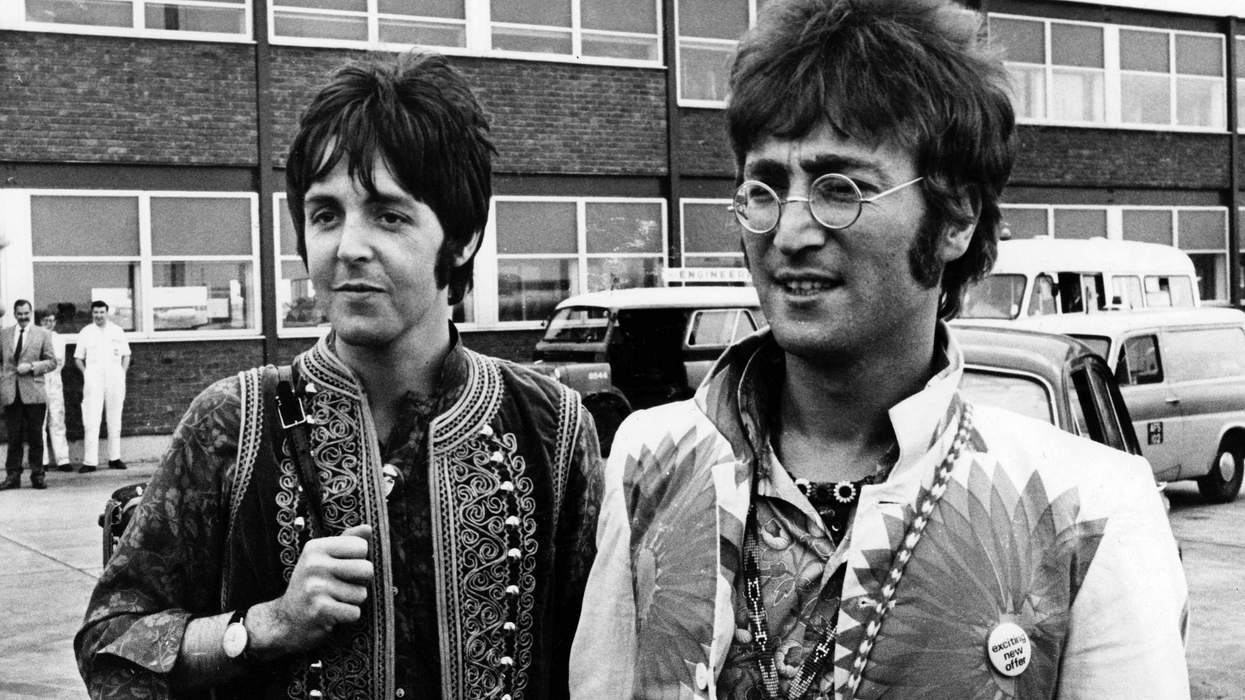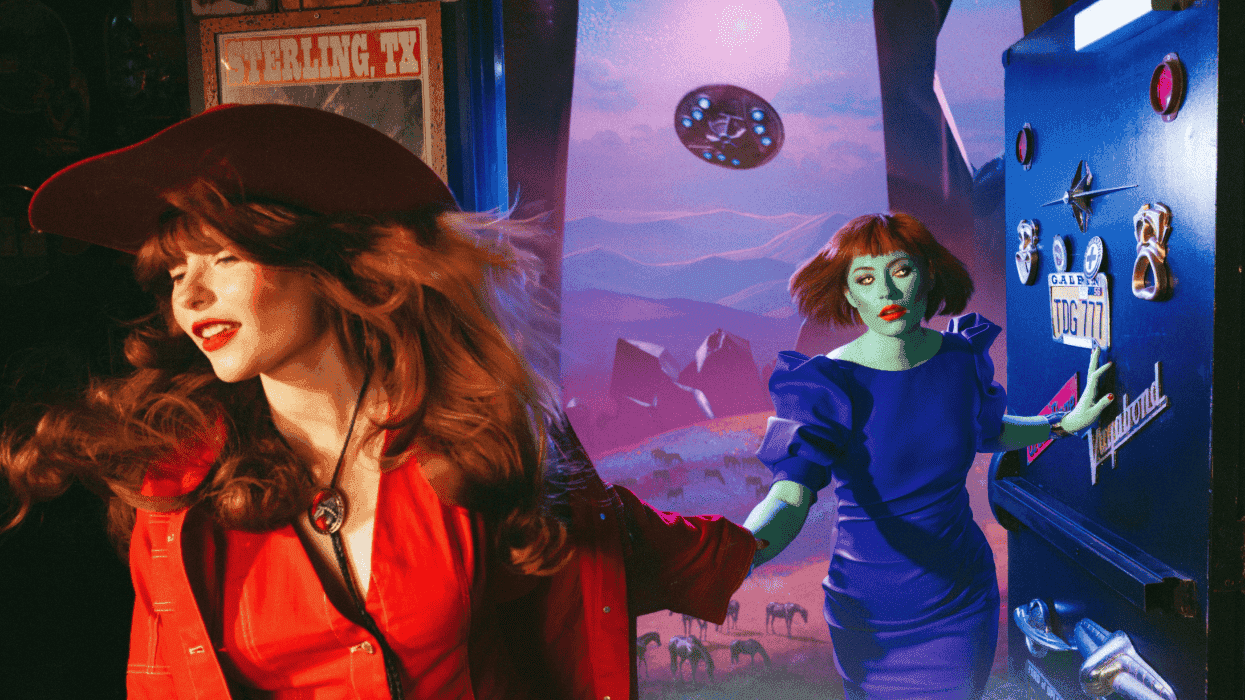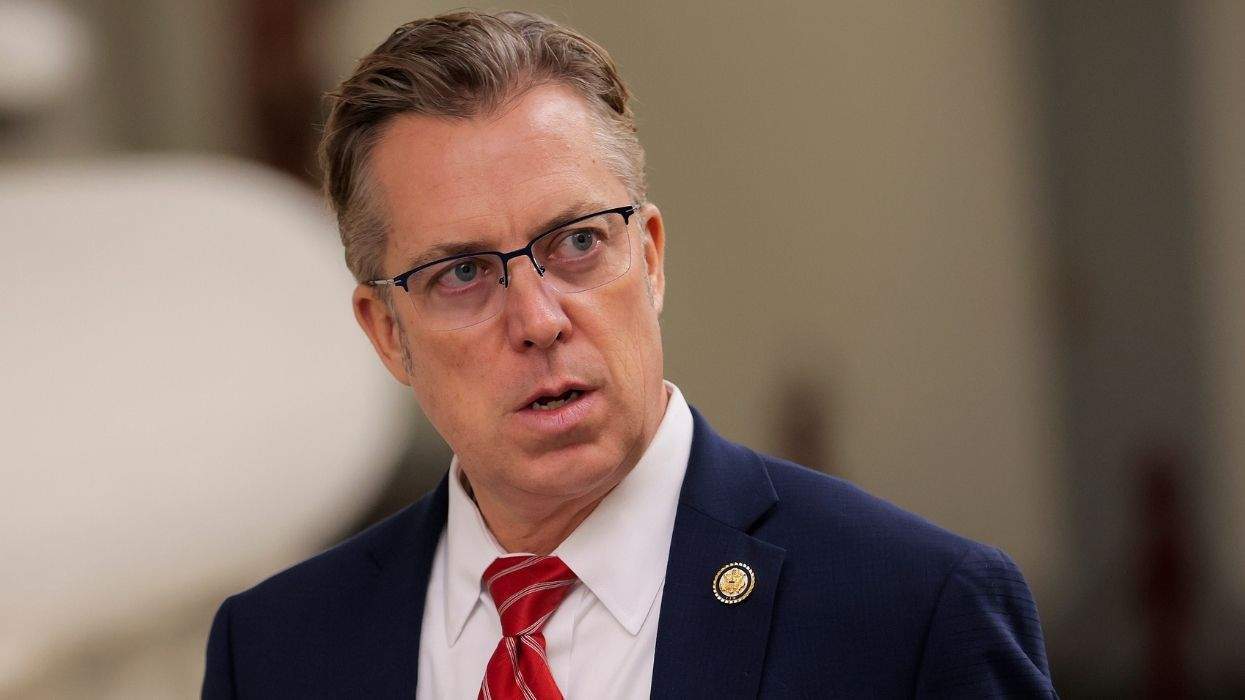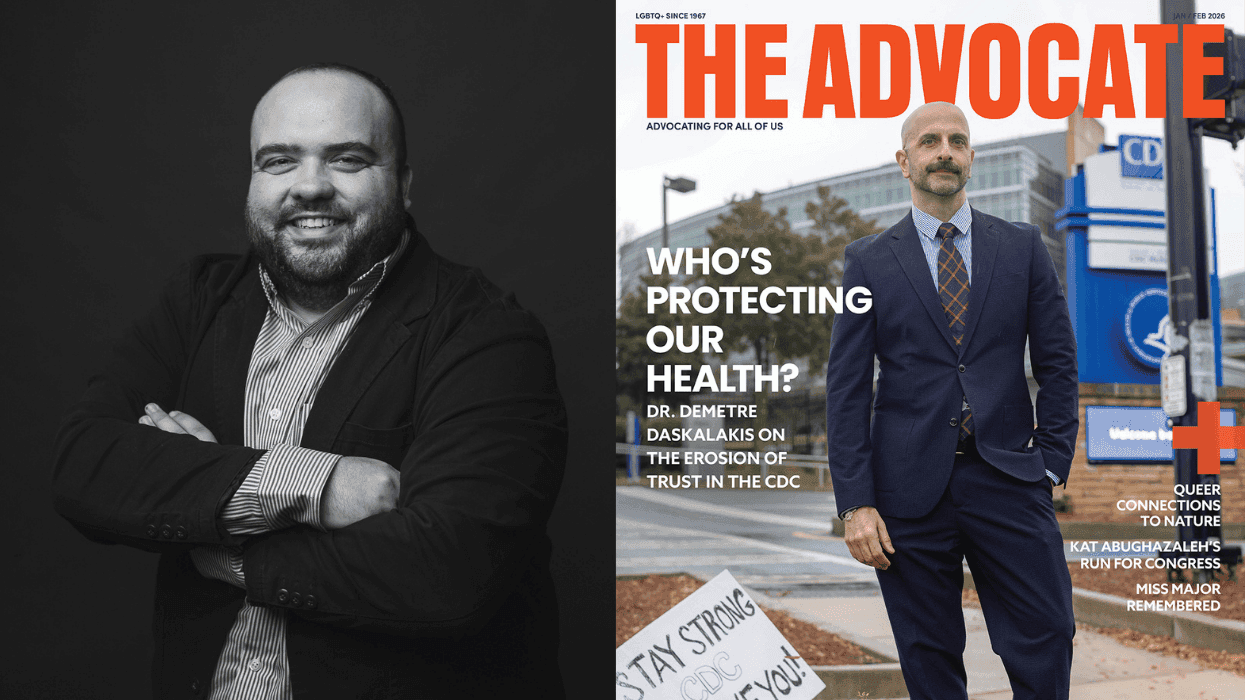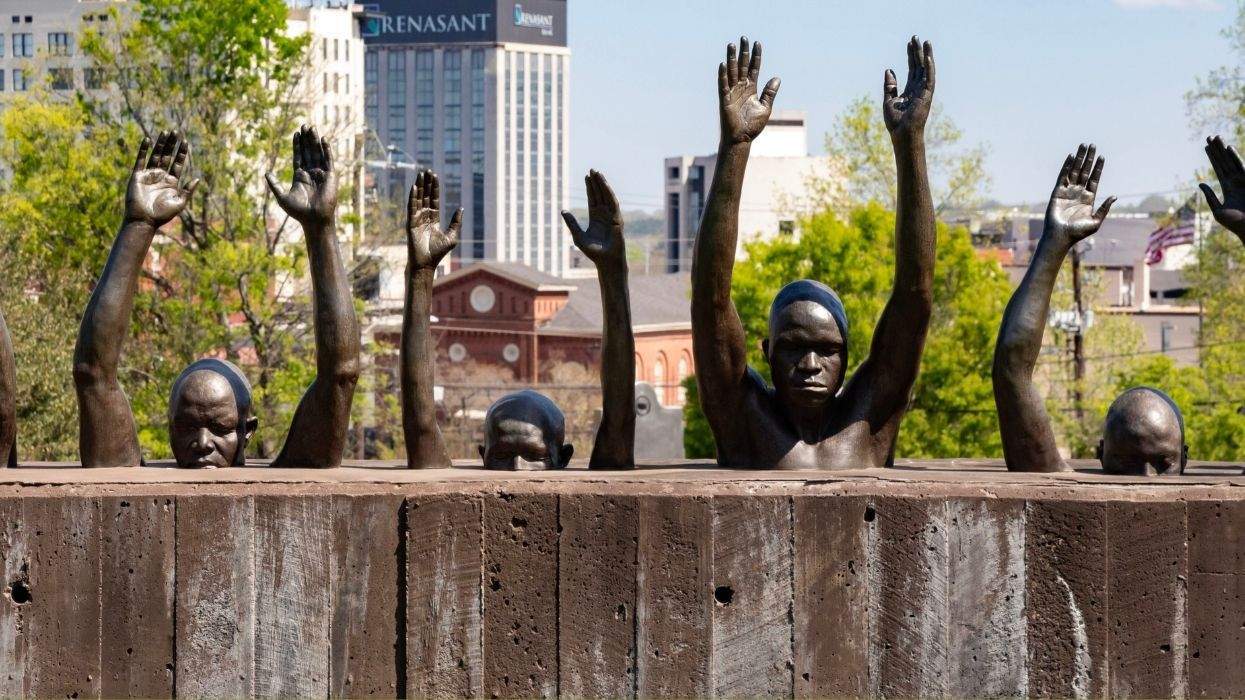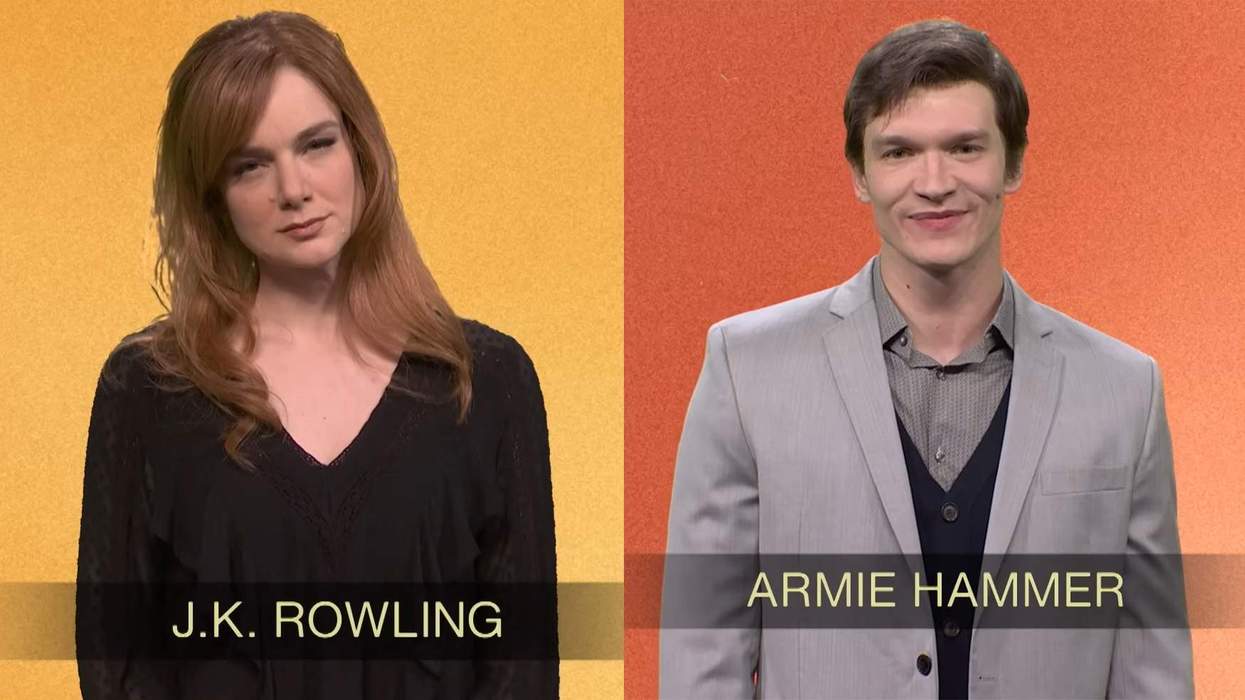Gay singer-songwriter Nhojj made music history twice in the past year -- first as the only black male ever to win an OUTMusic Award for his song "Love," and then, more remarkably, hitting the coveted number 1 spot on MTV's music video chart this month. The "Love" video is a narrative that culminates in two young black men embracing in a bed. Nhojj's sensual vocals drive the imagery, singing, "Our thighs now meet, our souls are singing, harmony sweet."
But Nhojj's life's trajectory was just as unpredictable as the success of his explicitly gay music video. Born in Guyana and raised in Trinidad, Nhojj was brought up in an extremely religious Caribbean family that still struggles to fully understand his homosexuality. Nhojj moved to the United States to attend New York University, where he studied economics. He talks to The Advocate about how he ended up in music and how honesty and "Love" have brought him so much in return.
The Advocate: Congratulations on making history. Did the "Love" video taking the number 1 spot on the MTV chart take you by surprise?
Nhojj: Oh, absolutely. [Laughs.] I had no idea. I remember when MTV actually added the video to the catalog, [my publicist] Ron and I were like, "Oh, wouldn't it be great if it went to number one?" But we never, ever expected it to get to number one. That was a huge, huge surprise. A pleasant surprise!
The "Love" video has quite a backstory, from the Sundance Film Festival to premiering on Logo's NewNowNext Pop Lab before hitting the mainstream ...
Yeah, there's an independent film called Blueprint, and I submitted the song "Love" for the film. The director, Kirk Shannon-Butts, he really liked it. It was exactly what he was looking for, and he essentially made it the theme song for the movie. You hear the song at a crucial time in the movie.
Blueprint is about two college males who kind of ... I don't know if you'd call it falling in love, but they have this strong connection that develops over the course of one day. So the film Blueprint did the film festival circuit, and it eventually ended up at the Cannes Film Festival a couple of years ago. So that was pretty amazing when it happened. And then it was Kirk's idea to do a music video, because when I released a DVD, it would be good to have a music video of the song. He incorporated some of the scenes for Blueprint, and he filmed some new scenes of [me]. So that's how the video got made, and we had expectations for it, but I mean, it was just a kind of simple thing. I met Kirk and we really connected and we thought, yeah, you know, let's do this. It'll be fun.
The song was actually released on an album prior to the film, right?
Yes, on Soul Comfort, in 2008.
So this success was a long time coming.
[Laughs] It really was! It really was! And you know, when I was working on that album, "Love" was not the song that I thought would take off. When I was working on it ... "Love" never crossed my mind as the song that would connect with so many people.
You could say that "Love" has brought people together ...
[Laughs] Absolutely, absolutely!
You remain connected to the Caribbean, even joining Rihanna last year at the Barbados music awards. Have you had any resistance to your openly gay public image in Caribbean countries?
Not of late ... you know, I live in the U.S. right now, and I've lived here for over 15 years. Since I'm not living in the Caribbean, I don't really experience ... you're not going to feel it, really feel it as if you're living there. But they're making strides, especially in Guyana. In Guyana there's an organization, SASOD, the Society Against Sexual Orientation Discrimination, and they actually have a film festival and they're doing some incredible work. They're raising awareness and kind of, you know, connecting the straight and gay worlds down in Guyana. So things are slowly changing ...
Do you think North American perceptions of attitudes toward LGBT people in other parts of the world, such as the Caribbean, are accurate?
There is a lot of homophobia. That story is very accurate. But I think there's another story that doesn't get publicized as much. And that is, you know, there are gay communities in the Caribbean. And they're working very hard -- and some of them are having success -- in raising awareness and changing the climate and the atmosphere in their countries. Guyana is the only one that I know about, but I imagine that other Caribbean countries are kind of forging pathways, but I don't know exactly what is happening. I do know for sure that in Guyana they're making strides.
When you came to the U.S. to pursue your economics degree at NYU, did you anticipate working on Wall Street, or did you always know you were going to be a professional musician?
It was ... um ... yeah, that's an interesting story. [Laughs] I was working full-time while I was at NYU. I actually worked as an X-ray tech. I knew I wanted a bachelor's degree -- that was kind of pounded into me growing up, "You have to get your education," so I was like, OK, since I was already working, it was like, what area, what concentration do I want to study? What am I interested in? I had no idea of how the financial world worked, so I thought, OK, let's study economics. So I just went into it because it was interesting. But there wasn't a plan for afterward. I guess my plan was, when I graduate, then I'll decide what I want to do after that. And that's what I did. After I graduated, kind of halfway through the program, I knew that I wasn't interested in working in the financial world. That became pretty clear. And at the end, it was, OK, so what do I want to do now? Growing up, music was always a constant in my life. And I always wanted to do it professionally, but you know, all your friends and family get into your head: "You can't be a musician; you won't make any money." But at that point I felt like, this is what I've always wanted to do, and this is what I always felt would make me happy. So just jump in and do it, and see what happens.
Your songs have been classified as soul, R&B, jazz, and even as "gay music." How do you classify your music?
If you think of it just musically, what it sounds like, I think of it as a fusion of a few genres. It has elements of R&B, it has elements of soul, jazz, reggae, that are all fused together.
In terms of what I want to bring to the table, I do want to raise awareness about homosexuality and about our lives. Because I think that everyone who steps out and adds ... whatever my story is, it's one more story that can reach five people or a hundred people, 500 people, a thousand people. I think each story makes our stories stronger. So I just want to play my part in making sure that we as gay people are seen as who we are. We're beautiful humans, and our lives are just as good and right as any other type of love that exists in the world.
You were raised in a religious household. What do you tell religious people who insist that LGBT people are living sinful lives?
Oh, yeah, I do experience that. And, you know, my dad's a minister and we're having this conversation right now, about what hell and heaven [are] ... and what I tell my family is that the only definition of God is that God is love. In the Bible -- and I'm not a Christian right now, but I grew up hearing the words from the Bible, so that's what I use when I'm talking to Christians. It's like, this is the book you believe in, and your religious, sacred book says that God is love. So what that says, if you just look at the English of it, is that God is love and love is God, and wherever love is, there is God. And that's what your book says. And so that's what I communicate to people, to my family, when those issues come up. And I also try to make a point of giving them love as well. I think that a lot of homophobia comes from fear, and my belief is that just communicating that I am of love and you are of love ...
I'll tell you an incident. We were having a family discussion, kind of sending e-mails back and forth about this topic. And my mom was really upset with the whole idea; she just couldn't connect her son and being gay. It just ... just a complete shutdown. She couldn't take it. You could feel her frustration and her tension. And what I sent back, essentially, was "We don't have to believe in the same things, but I believe we ought to respect each other's ability to believe in different things. And I want to let you know that I love you." And her message right after that was the complete opposite. You could just feel her release ... it was like a big sigh of relief for her. You know, love is a really powerful word. I have to respect your belief, but you have to respect my belief. And at the core of that has to be love.
It sounds like these relationships are an ongoing evolution in your life ...
Yeah, they definitely are.
You've been involved in something called the Gay by God campaign. What is that?
I'm really good friends with a same-gender-loving minister. His name is Pastor Joseph Tolton. He's the minister, church pastor, of a church in Harlem that accepts everyone. There's [another] pastor, Donnie McClurkin, who's a really big gospel singer, and he has a church as well. And every once in a while, he kind of ... well, he says really hateful things. Really hateful, homophobic things. And after his last outburst, which was late [in 2009], Pastor Tolton decided that since there isn't usually a public response -- you know, we all get together and we go, oh, how terrible it is what [McClurkin] says, but no one ever takes a public stance and responds to it. So he got together a group of gay, same-gender-loving people, and we took a picture together and he wrote a public letter. And he put it in the newspaper Metro New York. And essentially what it says is, we are human beings, we do believe in God, and the difference is that we believe God is love and this is how we are made. God doesn't make mistakes. We are made just as beautifully and in perfection just as heterosexuals are made. And we wanted to extend a hand to Donnie McClurkin, who has expressed that he was molested growing up, and, you know, he admits that there are issues there, but I don't think he has the tools to work through it. So we just wanted to extend a hand and state what we believe and how we respond to hateful messages. We're responding with love. I was really happy to be a part of it.
BET's Soul Sessions recently highlighted you as a "black history and gay history first." What does that mean to you?
That happened just before the MTV thing, actually, and that was ... it was completely shocking. Because, for me, you know, BET kind of represents popular black culture. And in my head, popular black culture is ... they don't quite accept homosexuality. That's what I always kind of carried in my head and believed, but to get that message of congratulations from that organization was really ... it really made me reconsider what was in my head and how I look at my black community. It was really good, really affirming, really encouraging to get that message. I'm sure I'm not even expressing it as it really [feels], but that's how much I can articulate it. It is a really encouraging feeling.
You said you didn't think "Love" would be your breakthrough single, but it seems like when you put yourself out there so honestly with that video and speak so honestly, that's when the success started to return to you.
Yeah, yeah. Ron and I were actually looking at it and we were like ... wow. It's just been amazing, and who knew? I've always been out, it's always been a part of my music, but this is connected to imagery of same-gender loving, connected it to my music, connected it to who I am. What was amazing is, there were some Guyana newspapers online that posted the video, and I was reading the comments. And the comments are from the average, you know, person on the street. And I was expecting comments to be hurtful, homophobic ... but there was none of that there. People were encouraging, supportive, sending their love, saying how proud they were. And I was like, Wow, this is really amazing. And it really did affirm for me that if you take a stand and tell the truth, miracles can happen.
So what's next for you?
I'm working on another project -- 2008 was the last time I released an album full of original material, and I feel my creative spirit going, it's time, it's time, it's time, it's time! And I actually want to focus it on my sexuality. I think, after the comments I've read about "Love," I think there's a real need and desire to hear more of our stories and see more of our images. Even in the straight world, I think people are curious. There's an interest and a curiosity about how we live. I mean, there's one part that is very hateful, but I think there's another big segment that is probably pretty curious about the way we live and what we believe, and I want to explore that in my next project. So we'll see what happens ...

